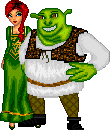Pg30- the effects model treats children as inadequate
The media effects studies positions children exclusively as potential “victims” of the mass media, and (rather cruelly) allow young people no opportunity to express their critical abilities, intelligence, or free will. Hundreds of shallow quantitative studies, usually conducted by “psychologists”, have often been little more than traps for the subjects, and ironically allow no scope for developing psychological insights. More generous research methods, which are willing to listen to children, have shown that they can talk intelligently and indeed cynically about the mass media (Buckingham,1993,1996), and that children as young as seven can make thoughtful, critical and “media literate” video productions themselves (Gauntlett,1997).
Media effects studies support conservative and right wing ideologies, even if that is not necessarily the conscious intention of the people producing them. The studies typically suggest that social problems are not rooted in the organisation of society, and inequalities, but are actually the evil magic products of popular culture. Their conception of screen violence as a meaningless but measurable “thing” also helps those who want to blame modern media instead of considering the serious social causes of the violence. The reasearchers’ categorisations of “antisocial” behaviour often reveal that they are worried about challenges to the status quo. The tendency to patronise and devalue children and young people, by assuming that they have no competencies worth considering, also fits with these illiberal trends.
Monday, February 26, 2007
Subscribe to:
Post Comments (Atom)



No comments:
Post a Comment